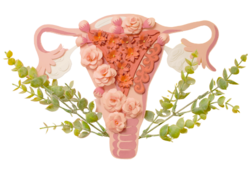Sexually transmitted infections are one part of sexual health, but that’s not all! Any aspect of health or healthcare that is related to sex and reproduction is about sexual health: menstruation, common infections like yeast or bacterial infections, birth control and abortion, health conditions like endometriosis, PCOS or phimosis, vaccinations, pain with sex, safer sex and other preventative sexual health practices and yep, STIs, too.
Sexual Health

Highlighted content
How Not to Get Pregnant: Five Things You Can Do to Most Effectively Prevent Pregnancy
- Heather Corinna
Articles and Advice in this area:
- Heather Corinna
Yes, coldsores are the oral herpes virus, or HSV-I. Your friend has it right. Understand that most people do not contract oral herpes sexually, but through casual contact, and the majority of people with oral herpes contract it in childhood, just by doing things like sharing glasses with family…
- Heather Corinna
Hey there, freakout. I’m so glad you’ve found so much help here, and kudos to you for thinking about all of this in advance of sexual activity! Really, that’s an ideal we’re always all hoping for. If everyone had all of this information in advance, we’d all be a lot healthier, and probably have much…
- Heather Corinna
There sure are a lot of choices in condom styles now, so it’s understandable that the array can leave folks mighty confused! Here are some of the most common “styles” of condoms out and about these days, and what the what is with each of them: Thinner condoms: Really, most condoms these days are far…
- Heather Corinna
You know, sex really is supposed to be fun, so while it is absolutely wise to do all you can to prevent a pregnancy, there are ways to do that which don’t have to be so involved or be a big buzzkill. Condoms, when used properly, are highly effective: around 98% effective with perfect use. Perfect…
- Heather Corinna
Understand that most sexually transmitted infections and diseases are asymptomatic. In other words, most often do not show symptoms, or symptoms any of us could easily notice. Some do, sometimes, and some do, but not until a person has had the infection for quite some time. Please also understand…
- Heather Corinna
If you’re considering or planning an abortion, you need to know what your options are, what’s involved before, during and afterwards, and how to consider or make this reproductive choice as best you can. We unload abortion for you so that you can inform yourself to be sure it’s the right choice for you, and if you choose it, find out what you need to know to best take care of yourself throughout.
- Sarah Riley
My first question in this case is, did your health care provider look into your menstrual difficulties or did they just slap you on the pill and assume that would solve the problem? If nobody really looked into your problem, then I’d suggest that you consider heading back to your provider (or a…
- Sarah Riley
When you start taking the pill, you’re adding lots of extra hormones into your system and they are essentially forcing your body into a new sort of cycle. It’s not like the cycle you have when you aren’t on the pill, because you no longer ovulate. Typically, you begin taking the pill around the time…
- Heather Corinna
If it has been less than 120 hours since her risk, the best thing – least expensive, least invasive, easiest – for her to do would be to obtain emergency contraception. EC can work up to 120 hours after the fact to prevent pregnancy. if she is over 18, she can get it over the counter at any…
- Heather Corinna
So long as you take your pills as directed and on time, with the exception of a few medications or herbs that can interact with the pill, you’re as covered as you get. We get questions like this a lot, so in the interest of making sure you and everyone else understand your pill as best you can, let…



